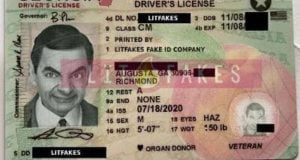Why are casinos often on boats? This has been a common question among casino patrons over the years. Casino gambling typically has a complicated history. There are a good number of riverboat casinos in the United States. These types of casinos started appearing at the start of the 1990s. Casinos located on the water are created that way to limit their social and geographical impact while providing a steady income stream for the state where they are located.
Take an example; the states along the Gulf Coast and Mississippi River chose water-based casinos instead of land-based casinos. The goal was to help persuade the public. The history of riverboat casinos is mostly based on common law. After Nevada’s casinos’ profitability was guaranteed and the casinos based in Native America became prominent, the remaining states decided to cash in as well. No wonder, riverboat gambling began to gain acceptance as a balanced solution in the battle between money and the law of the land. These states authorized riverboat casinos to allow gambling and limit the number of locations where land casinos would be situated.

The History of Riverboat Gambling
For a time the riverboat casinos were very restrictive. Gambling was only allowed to take place when the boat was on a short cruise. Probably a journey that can last for a few hours. Gambling could only take place after the boat had started sailing. Typically, it must get to three miles from the shore before those onboard could begin to gamble. Eventually, several laws were implemented to restrict these gambling cruises to simple touring journeys (these types of journeys were already ongoing on the waterways). At the time, in Iowa, a riverboat casino could sail only100 times a year at most.
Riverboat gaming was a byproduct of excess money or spare time meetings during long trips. However, well to do merchants would typically spend longer periods traveling around the country by water in search of new business opportunities. Much of this journey was done via the extensive waterways and the eastern seaboard approaching the Midwest. These merchants who had plenty of money to spend and time on their hands wanted to find relief from boredom. This desire bore fruit to gambling as it became the preferred option when it came to passing time on riverboats.

It didn’t take very long before professional gamblers started to make riverboats their home. At the time, it was illegal to gamble in nearly all the municipalities that were around. It was common for lynch mobs to handle cheat with extreme prejudice. Hence, with angry losing gamers on one side and the law on the other side, it was understandable to move out of the road. No wonder, the gamblers of that time left the land and hopped on the waterways. The lore surrounding professional gamblers at the time continues to inspire to this day. You wouldn’t have to look very far to find these individuals portrayed in film and on TV.
Despite this growth in riverboat gambling, the decision to expand railroad transportation and the American Civil War took riverboats gambling a step backward. This form of gaming became outdated for everyone involved because the railway became a more viable mode of transportation. This was the case until the 1980s. During this era, the country began to see riverboat gambling coming back to life. Different states looked to the west and saw the type of revenue that it was generating (especially that of Nevada gambling). The system was bringing huge revenue to the coffers of the state in the form of gambling taxes. Eventually, the states around the Mississippi began to pass laws that would give gamers a chance to gamble on their waterways. These states created a legal framework to tax riverboat casinos.
In the year 1994, Missouri voters gave their approval for the amendment of the constitution of the state to make provision for “games of chance” on the Missouri and Mississippi rivers. Four years on in 1998, per the state Gaming Commission, “three of a total of 16 operations that make up Missouri’s riverboat gambling sector were on the main river pathway.” At first, the supreme court of the state ruled that boats were to be over the surface of the water. Some casinos were located on riverboats in areas with waters adjacent to a navigable waterway. This ensured that they were called boats in moats. The state lawmakers weren’t willing to give up the source of revenue that was created by this type of gambling. As time passed, they let casinos set up on stilts (although they must be over navigable water).
Modern Water-based Casinos
In modern times, the bulk of the water-based casinos are static. They don’t move. Some have been changed to stationary buildings floating on water blocks. These types of water-based casinos aren’t designed to float. Most riverboat casinos presently are no more in boats. Maybe the only thing that they still have in common with the boats from the past is the fact that they are still water-based and seem to float. When the first riverboat casinos that came into existence were legalized, they were incredibly restrictive as stated above. Most of these casinos had as little as $5 limits bets. There were also restrictions on the total sum of money that a gambler could lose on a trip.

These restrictions were relaxed in the 1990s. The revenue stream became open more and more. This was the case for both casino operators and the state governments. Today, riverboat casinos can be found in more than six states. The six states that operate water-based casinos include Louisiana, Mississippi, Iowa, Indiana, Missouri, and Illinois. After Hurricane Katrina in 2005 (Katrina destroyed the bulk of the riverboat casinos in the country and their associated facilities), states on the Gulf Coast, several other states began to change their riverboat gambling legislation and amend their constitutions. The new law permitted such types of casinos to only be built on land and with specific geographical limits away from a navigable waterway. A good number of Mississippi’s Gulf Coast water-based casinos have been built back on beach-fronts since the hurricane that destroyed the previous structures.
Riverboat casinos became more popular after this and competition began to grow. The limitations placed on this type of gambling was relaxed. The length of the cruises was also increased. Eventually, the coast guards became frustrated with the evening casino cruises flooding the waterways. At the same time, casino owners wanted a way for the law to allow gambling on their boats over extended periods/hours. Again, casino customers did not like cruising. They did not want to be away from the dock for a particular period. As a result of this, riverboat casinos were moored on the river edges. They are now known as boats in moats.
How Water-based Gambling State Budgets and Boosts Local Economies
Riverboat gambling has reportedly had an incredible impact on State and local budgets as well as the economy in the regions where they operate. Take an example, in the state of Indiana, these types of casinos are levied up to 20% in both state and local taxes. From the 20%, 15% belongs to the state government, and the remaining 5% goes to the local community. The money that comes from gambling has had a huge impact on several civil projects and social programs. Louisiana receives more tax money from water-based gambling than any other sector. Besides, the water-based casinos offer other benefits apart from tax money. They create jobs. Riverboat casinos must employ dealers, accountants, a management staff, a security team, and other hospitality workers. Most of these employees are always pulled from different communities. Hence, pumping millions of USD into the local economy.
Final Words
You might not find the type of luxury and opulence seen in land-based (like those in Las Vegas) casinos on riverboat casinos. However, it is still a part of the allure of gambling on water. This option has a way of bringing you back to the simpler times while you enjoy nature. Presently, just like the locomotives on the railroads that have replaced riverboats, things have a way of moving at full speed with no stops for extended periods. If you are looking to enjoy an entertaining experience in a welcoming space, you can check out some of the unique water-based casinos.




